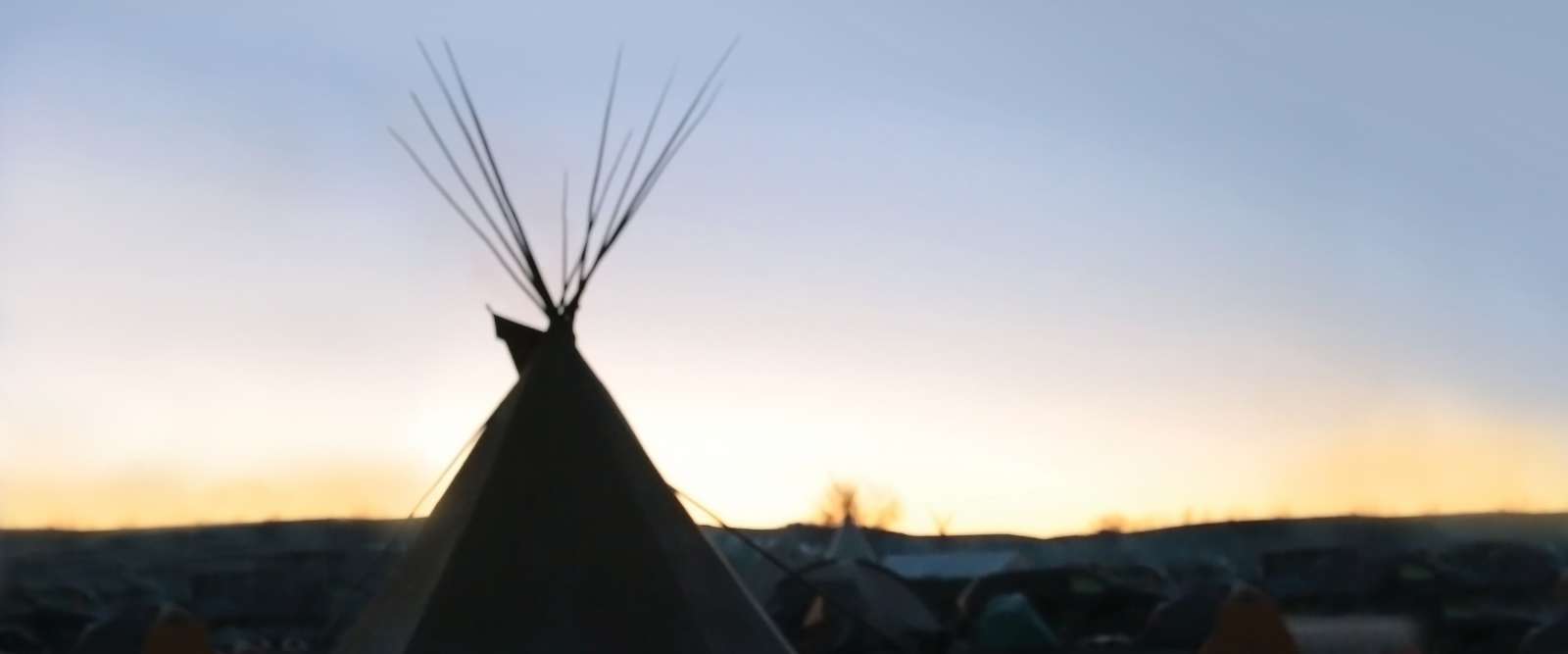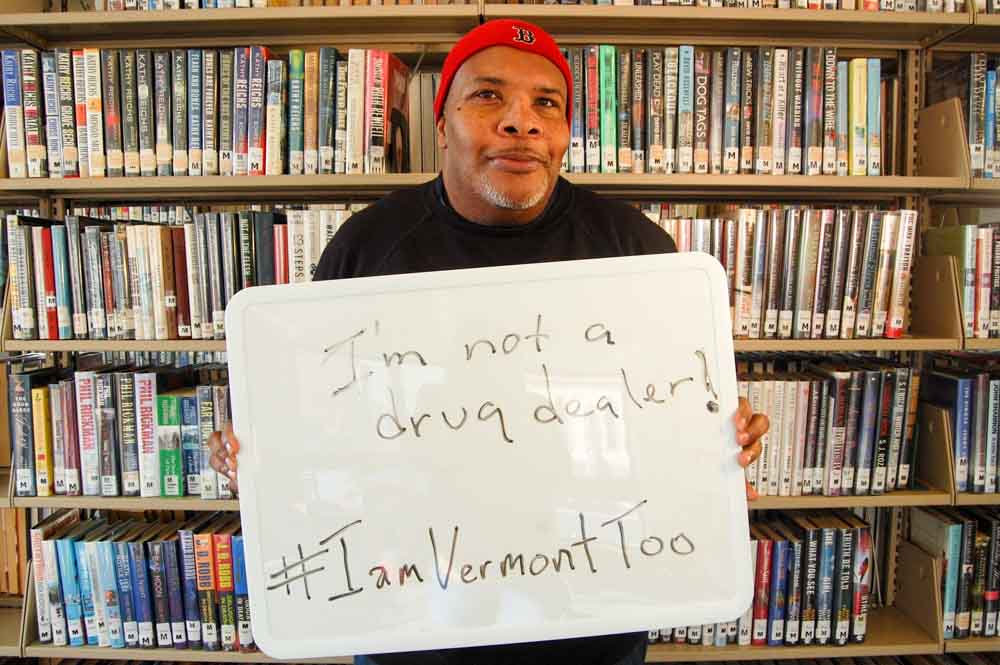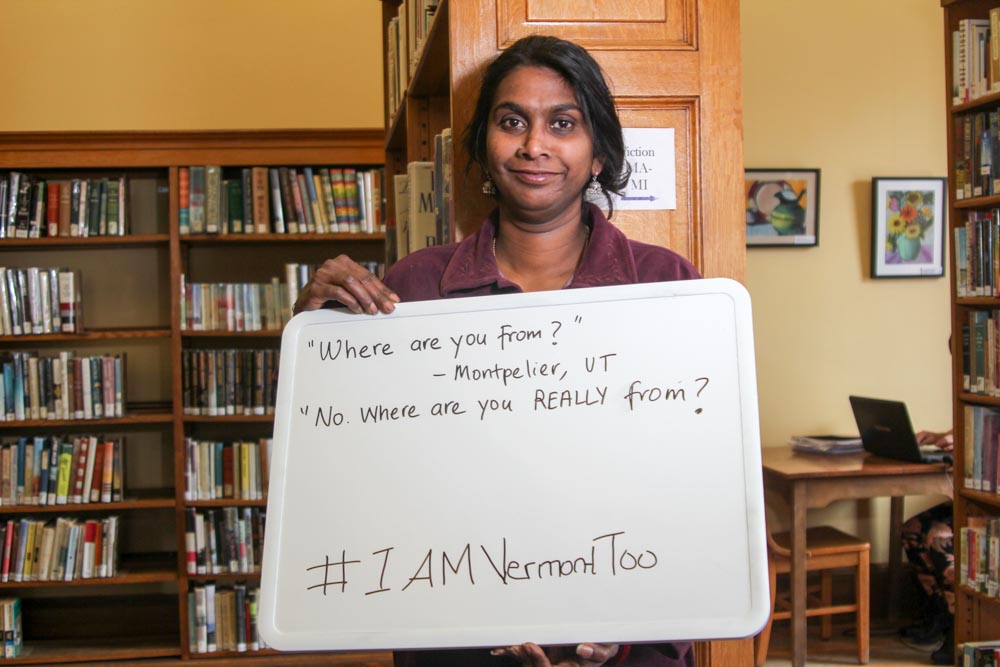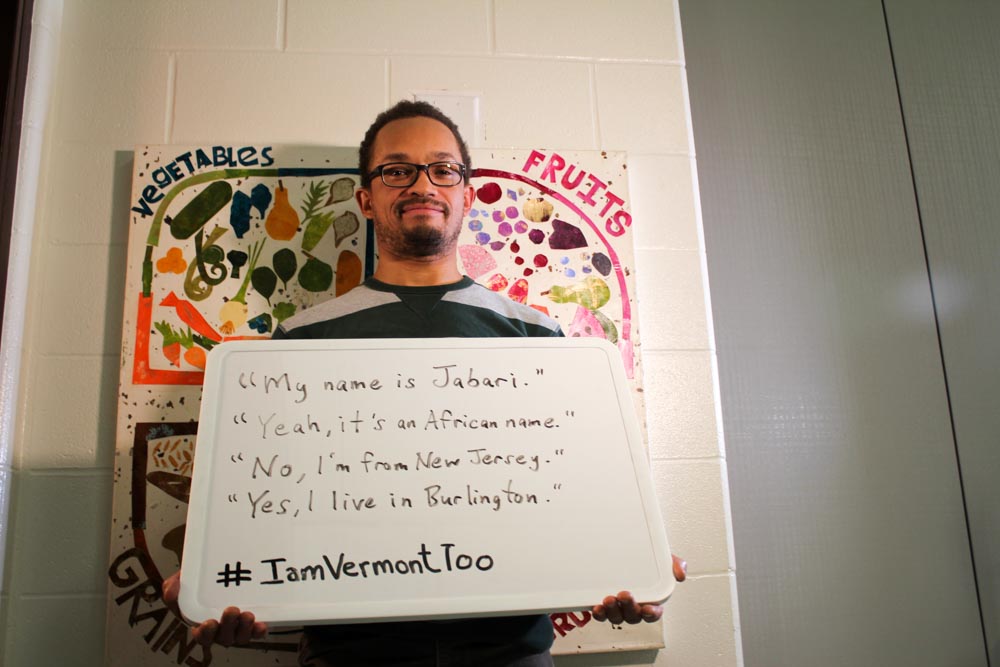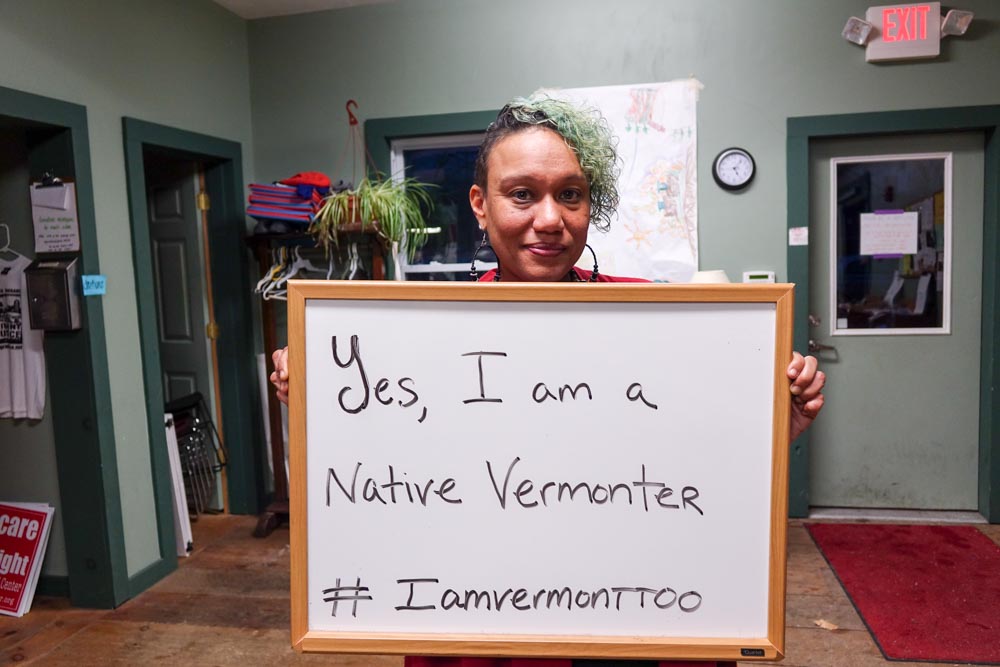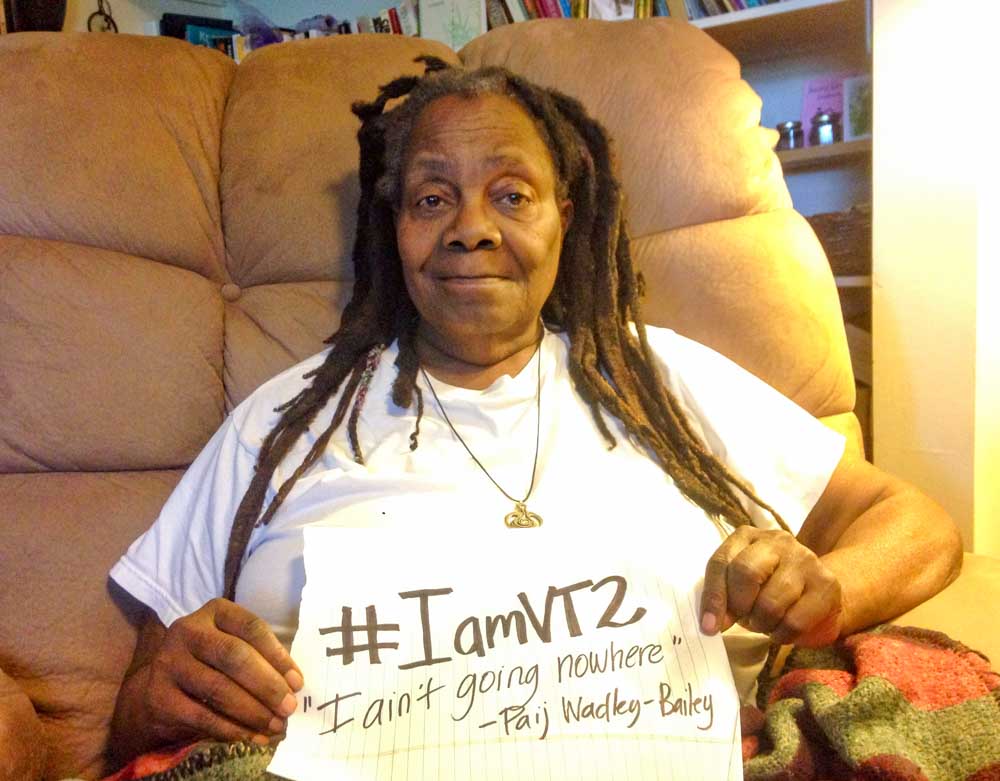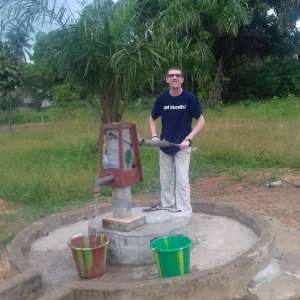
Spring 2017: The Justice Issue
What is justice? Does it exist in our society? How do we achieve it? Why does it matter?
We take a look at the big questions of fairness and equity in this issue of Keene State Today – and we do it through the stories of alumni, students, faculty, and staff. We’re pleased to introduce you to some of the ways we seek justice on campus and to some members of the Keene State community for whom justice is not just something to strive for, but an organizing principle for walking through the world.
Features

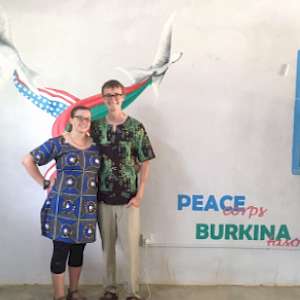
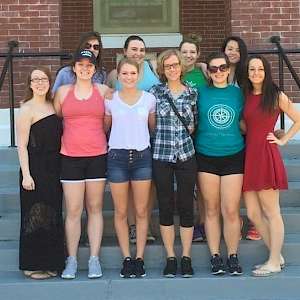
Online Extras
Justice in the Classroom
From Sarah O’Connell’s Final Paper for Literature of Social Justice:
There is no denying that we are all stereotyped every day at every moment. It is unavoidable. We also cannot deny that we all try to be stereotyped a certain way; we want to be seen in a certain light. Our entire lives we are working toward trying to fit into a certain group. With certain stereotypes come certain jobs that fall within that category. For example, a college student who falls into the “artsy” stereotype is unlikely to fall into a job as a banker, accountant, or have a carreer in agriculture. At the same time, someone who grew up in the country and has played the part of a “redneck” is unlikely to become a fashion magazine editor. Much of stereotypes are based off of our personalities as people. We need these stereotypes to feel at home with our own personalities so we can be who we want to be.
While we go through school, judgment is all around us, but one could argue that we want to be judged, just as we want to be stereotyped. People are judged on their clothes and appearance, just as we are stereotyped because of our personalities and how we hold ourselves in the company of others. Our personalities are shaped by what we get judged on and discriminated for. We put on our clothes every day to present ourselves in a certain way. We want the person who is sitting four seats away from us on the subway to view us in a certain light, but why do we care?
What people may tell themselves is that they care because it could possibly get them a job. As said before, fitting into certain groups of society leads to certain jobs. If you want to get a job at a fashion magazine, you are not going to show up to the interview dressed like you are ready to go pick the kids up from soccer or do chores on the farm. You have to look the part.
If we did not have these stereotypes, there would be no differences among people; we would all be the same. We live in a society that tells us to value who we are, to value our differences, and share them proudly. To be an individual is to acknowledge the fact that not everyone is going to like you. You are going to be judged by what you wear and how you talk, where you work and where you live. You are going to be stereotyped on who you talk to, and what your personality is, and you are most definitely going to be discriminated against – and you will love it in most cases. The only time you won’t like it is when it does not work in your favor.
What can be interesting is what our world would be like if there was no discrimination at all. What would we be like? How would we be who we are, how would we find our personal identities? Discrimination plays such a large role in defining us for who we are that it is hard to image a world or society without it.
From Maiah Jones’s “Restorative Incarceration Program” :
Origami Dialogue
Within this exercise victims and offenders are able to write onto a piece of origami paper. After writing a story/feelings, sharing is available in which everyone has a chance to read their story/feelings aloud to be heard. Sharing a story is not mandatory but it is recommended. When sharing a story it allows for a voice to be heard and others acknowledge your feelings. After sharing, we make the piece of origami paper into a sculpture. There are hundreds of different objects that can be created with origami. This practice can be used as many times as the individual would like and it helps release emotions and create them into objects. Victims and offenders are able to come together and talk about the harm that was caused and how each party feels. These emotions and feelings are able to be written down and seen by both parties in order to try to restore this harm. This capability of accessing self forgiveness as well as forgiveness with the victim is crucial to be able to come to justice with your crime.
Day 1
Theme: Feelings
Question: How did you feel right before you opened your eyes this morning? Did you have a dream that made you feel a certain way? Were you thinking of someone without even acknowledging you were doing so?
Take as much time as you would like and just think about how you felt. When you are ready, come pick out a piece of paper and being to write how you felt.
Origami Sculpture: Angelfish
This sculpture is a symbol of happiness, well-being, and freedom. It is a symbol of strength, courage and determination in order to swim upstream. The ability to carry strength and determination with oneself is key to surviving in the world, or sea. Every person needs strength and happiness from something in the world, but it is each individual who needs to find this happiness from somewhere. What everyone wrote on their piece of paper is different, and not everyone is feeling happy, but this angelfish represents happiness and now each of us will have happiness somewhere.
So how do you feel now? Is there any difference from when you first walked into this room?
Faith Foote ’07: An Advocate for the Vulnerable
I graduated KSC with a journalism degree in 2007. I started my journalism career with the New Hampshire Union Leader as a correspondent immediately after graduation. I always intended to be a journalist or an editor, but as always, life ends up taking you down a different path. I left my position at the Union Leader because my then-fiancé Colin commissioned as an officer in the U.S. Army and he was stationed at Fort Bragg, N.C. We got married and I took a part-time reporting job in Sanford, N.C., but I was starting to realize that I wanted to become more of an advocate than the neutrality of journalism allows. I studied and applied to law school while my husband was deployed to Iraq in 2008-2009 and I attended New England School of Law in Boston. During my time at NESL, I gravitated towards public interest work, especially immigration and veteran clinics. I had originally hoped to do more macro-level public interest work in policy and legislative affairs, but after I passed the North Carolina bar exam in summer 2012, it was the height of the oversaturated legal market. I decided to use my law license to volunteer at Legal Aid of North Carolina to gain some experience and help those in need, and I ended up really enjoying the work that I applied to a similar position as a Staff Attorney at Pisgah Legal in Asheville, N.C. Pisgah Legal Services, like many Legal Aid-style organizations, is a non-profit law firm that represents low-income individuals and families whose income falls below 150% of the poverty line. They are funded mostly through federal, state, and private grants so there is no cost to the client who is seeking services.
One thing that I enjoy about this work is it’s making a difference, on the ground, with individual clients who are facing a crisis, whether it is leaving a violent relationship or facing homelessness. Many times, clients are vulnerable and this may be the first time someone has stood with them in their corner. I have found it’s a great impact for someone to say, “I believe you and I’m going to do my best to make this right.” At PLS, I split my work evenly between domestic violence prevention and homelessness prevention, and what that really means is I was representing clients in court to obtain domestic violence orders of protection, child custody, and/or divorce for victims of domestic violence who had recently left their abuser; and I was representing individuals and families in court who were facing imminent homelessness through eviction against landlords who were bad actors, such as landlords refusing to fit the rental home in habitable condition. These cases were often extreme cases. In domestic violence cases, the victims often were strangled, punched, or threatened with firearms by their abuser immediately preceding initiating a court action for a protective order. We routinely did housing inspections for our housing clients, and there were numerous occasions that there were massive holes in the flooring of the home, so large that you could see to the ground outside. My clients are not bad people; they are often hard-working or disabled and they just want a nice life for themselves and their family. They usually work low-income jobs and have ended up in crisis after they faced an unexpected setback such as an illness or injury, job loss, or death in the family. Everyone deserves dignity and justice, no matter their income level. What PLS, and other similar firms, aims to do is level the playing field in the courtroom. Those who don’t have an attorney in these situations, often don’t have much of a chance of success on their own. Even when the facts are in their favor, it can be difficult to process the justice system and properly advocate the legal issues in front of a judge.
A lot of people don’t understand Legal Aid-style law firms until they need one for themselves or a family member, and they quickly realize that these programs are greatly underfunded. Depending on the type of grants, attorneys can be limited by the type of case they can pursue. There is also the fact that these cases take a lot of time, and with only so many attorneys in a firm, that means clients with the most need are often prioritized. Not to make this too political, but there are rumors floating that the Trump administration will propose to either gut or entirely eliminate much of the federal funding that now goes to domestic violence prevention work, which would include the funding of many attorneys. What that often results in is an increase of victims not pursuing cases and very possibly less successful results for those who do. Participating in the justice system is scary enough for those who are unfamiliar with it, it’s even harder when you cannot afford an attorney and you are facing the person who abused you.
One anecdote that I have in particular is for a domestic violence client that I worked with over the course of several years. She originally came to me for a protective order after her boyfriend strangled her and nearly left her for dead in front of her infant child. When I first met with her, she was incredibly defensive and combative, likely because of the trauma she had suffered and her lack of faith in the system. She even said, “It doesn’t matter, he’s going to kill me.” I was able to obtain a protective order that ordered that he have no contact with her or her child, that he surrender his firearms, that he be evicted from her rental property, and that she be given temporary sole custody with the abuser only having supervised visitation with a social worker. She worked with other community agencies to find child care for her child while she went to work and she engaged in therapeutic services that were given through a local domestic violence non-profit. A year later, we renewed her protective order and we filed for permanent custody. In her permanent custody hearing, she was awarded sole permanent custody and the abuser was ordered to have no contact with the child. Her demeanor when we finished was a 180 from when I met her: she was relieved, she was happy, she was hopeful. With all of the court litigation behind her, she could now move on. I don’t want people to be naive to think this is always the case, but when this does happen, it fuels the drive to continue doing this type of work. Obviously, there are often very difficult cases where I’ve been unsuccessful, but I hope that in those experiences, the client has benefited from my work in navigating them through the court process.
While I was at PLS, I was the lead attorney for two N.C. Court of Appeals cases and co-wrote the briefs that were submitted to the appellate court. The first wasa domestic violence case that was a published decision that overturned a District Court’s dismissal of a victim’s case on due process concerns. The latter was a housing case that overturned a dismissal of a counterclaim (counter-suit) I brought against a landlord for failing to make repairs.
I left my position in 2016 after three years at PLS because my husband I adopted our son from Korea. I have been staying home with him and volunteering with the Military Spouse J.D. Network (a non-profit for military spouse attorneys) until our scheduled move this summer to Monterey, Calif. When we move to California, I am hopeful that I can volunteer with similar non-profits in advocating for low-income clients in vulnerable situations.
I Am Vermont, Too
More images from the I Am Vermont, Too exhibit. Read about the exhibit, and one of the founders of the I Am Vermont, Too project, Shela Linton ‘01, on pages 18 and 19 of the Spring 2017 issue of Keene State Today.
Links
Link to John Uniack Davis’s blog posts:
The Humanitarian Community Is Counting on the Oslo Conference to Raise Awareness and Funds for the Neglected Lake Chad Crisis
Crisis in the Lake Chad Region: Oslo Conference Seeks Solutions
Website for CARE
Website for Helen Keller International
Faculty & Staff Accomplishments
Professor Rich Blatchly and the Amazing Science of Olive Oil
Publications by Professor Jerry P. Jasinski
And more publications by Professor Jerry P. Jasinski
Keene State Giving
Read more about alumna Emily Robinson and her work at the US Holocaust Memorial Museum
